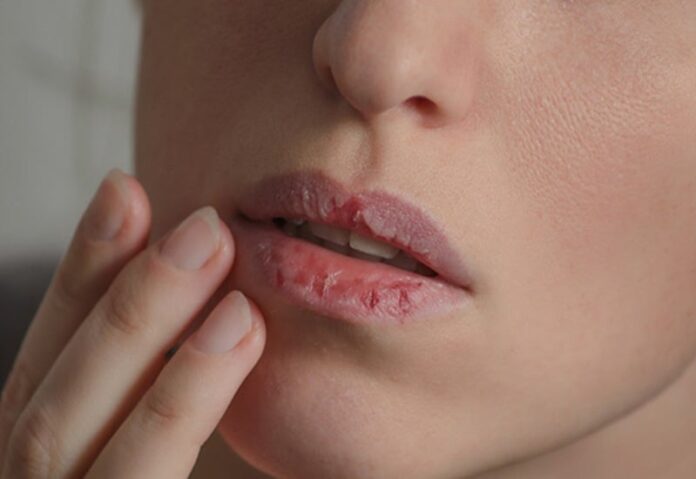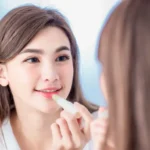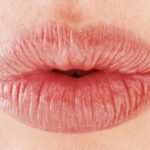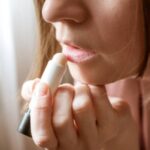Chapped and cracked lips can be more than just an aesthetic concern, often causing discomfort and even pain. This condition tends to worsen during the winter months, and it’s important to understand the underlying causes to effectively address it.
Unlike the skin on our face, which has up to 16 layers of cells, our lips only have 3-5 layers. Additionally, the lack of a protective layer of skin or natural oil-producing glands makes our lips more susceptible to dryness and cracking.
Here are the main reasons why our lips become chapped:
Dehydration
One of the most common causes of dry lips is inadequate water intake. When the body is dehydrated, it prioritizes water retention for vital organs, leading to dryness in the lips. Ensuring proper hydration by drinking enough water daily is crucial to improving this condition.
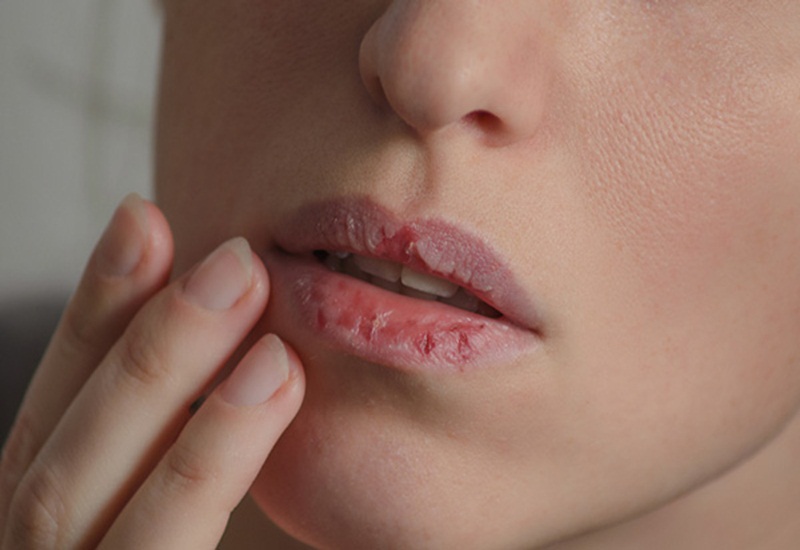
Improving hydration is key to combating dry lips.
Lip Licking
Many people have the habit of licking their lips when they feel dry, but this actually exacerbates the problem. Saliva evaporates quickly, taking moisture away from the lips. Moreover, digestive enzymes in saliva can irritate and further dry the lips.
Environmental Factors
Sudden temperature changes, dry weather, air conditioning, and sun exposure can all contribute to lip dehydration and cracking. Using a lip balm with SPF can help protect the lips from these environmental stressors.
Allergies
Certain lip care products containing strong fragrances or colorants may irritate the lips and worsen chapping. For those with sensitive lips, it’s advisable to choose fragrance-free and gentle formulas.
Nutritional Deficiencies
A lack of vitamin B2 (found in eggs and lean meat), zinc, or iron can also lead to dry lips. Maintaining a balanced diet rich in green vegetables and nutrient-dense foods will help promote healthy lips.
To effectively address chapped and cracked lips, it’s important to choose the right lip care products. According to makeup artist Rupert Kingston, look for lip balms that contain the following ingredients:
Ingredients to Look For
– Natural oils: Argan, safflower, and jojoba oils help moisturize and soften the lips.
– Hydrating agents: Hyaluronic acid and glycerin attract water into the skin, maintaining optimal moisture levels.
– Restorative components: Ceramides and peptides aid in skin regeneration and soothing irritated lips.
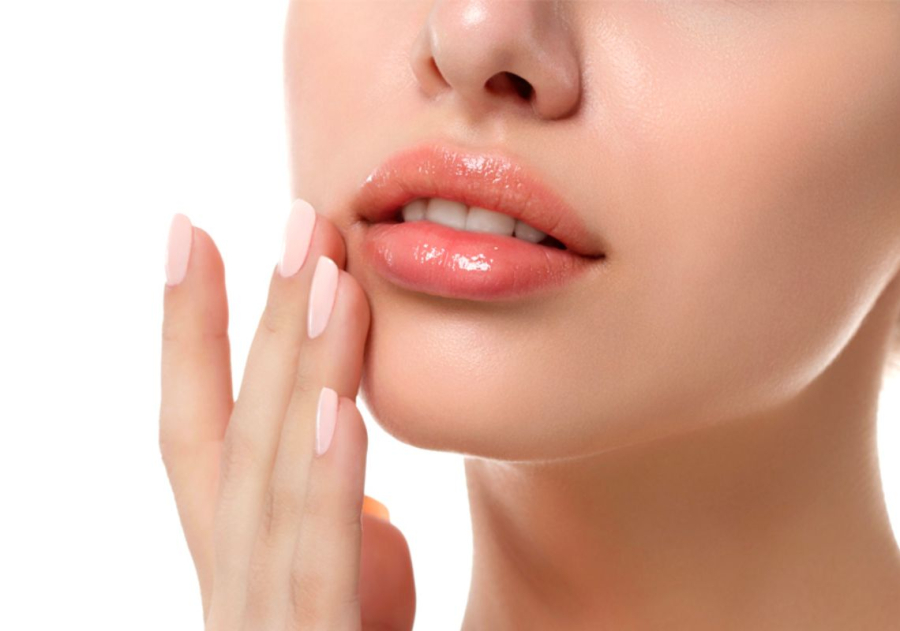
Choose lip care products with the right ingredients.
Ingredients to Avoid
– Mineral oil and petroleum jelly: These create a temporary protective layer but do not provide the necessary moisture.
– Fragrances, menthol, and chili powder: Often found in plumping lip balms, these ingredients can irritate and dry the lips further.
Should You Exfoliate Chapped Lips?
Gentle exfoliation can help remove flaky skin, but it’s important not to overdo it, especially when the lips are extremely dry or damaged. Opt for a lip scrub that contains sugar or fruit enzymes, and always follow up with a moisturizing lip balm.
Taking care of dry and chapped lips not only improves their appearance but also enhances your overall comfort. By identifying the root causes and implementing appropriate measures, you can achieve soft, healthy lips even during the harshest winter months.
The Secret to Smooth, Flaky-Free Lips: 3 Easy Steps for a Better Pout Than Any Lip Balm
Did you know that the lips only have a third of the thickness of the stratum corneum compared to the cheeks, and they don’t have any sweat glands? This makes the lips the driest area on the face. Discover the top 3 tips from dermatologist Tsai Yilun to achieve plump and hydrated lips during the dry autumn and winter seasons.
























